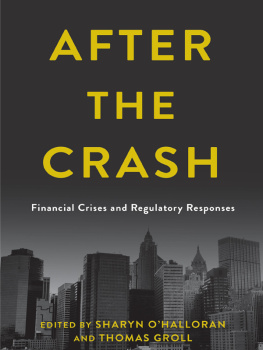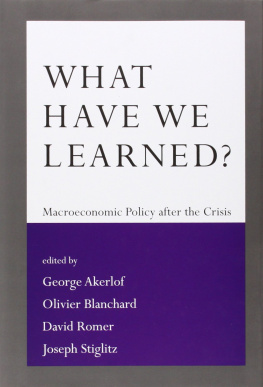David Harrison
Sevenoaks, UK
ISBN 978-3-030-78393-8 e-ISBN 978-3-030-78394-5
https://doi.org/10.1007/978-3-030-78394-5
The Editor(s) (if applicable) and The Author(s), under exclusive license to Springer Nature Switzerland AG 2021
This work is subject to copyright. All rights are solely and exclusively licensed by the Publisher, whether the whole or part of the material is concerned, specifically the rights of translation, reprinting, reuse of illustrations, recitation, broadcasting, reproduction on microfilms or in any other physical way, and transmission or information storage and retrieval, electronic adaptation, computer software, or by similar or dissimilar methodology now known or hereafter developed.
The use of general descriptive names, registered names, trademarks, service marks, etc. in this publication does not imply, even in the absence of a specific statement, that such names are exempt from the relevant protective laws and regulations and therefore free for general use.
The publisher, the authors and the editors are safe to assume that the advice and information in this book are believed to be true and accurate at the date of publication. Neither the publisher nor the authors or the editors give a warranty, expressed or implied, with respect to the material contained herein or for any errors or omissions that may have been made. The publisher remains neutral with regard to jurisdictional claims in published maps and institutional affiliations.
Cover illustration: John Rawsterne/patternhead.com
This Palgrave Macmillan imprint is published by the registered company Springer Nature Switzerland AG
The registered company address is: Gewerbestrasse 11, 6330 Cham, Switzerland
Preface
The theme running through this book is how expectations of the futurea future about which we know very littleaffect present-day economic activities, and in particular the function of investment. Expectations are precarious, and rise and fall in line with sentiment in speculative investment markets. When they rise too far, and collapse completely, the collapse in expected yields of capital assets precipitates an economic crisis, a full-scale depression if the investment comes to a full stop, and quite possibly a political crisis too.
Numerous authors have written about the inadequacies of modern economics since the 2008 financial crisis. To name a few, in chronological order: John Cassidy (How Markets Fail: The Logic of Economic Calamities) (2009) made the case early on against utopian economics, and the idea that markets are inherently rational. In A Failure of Capitalism (2009) and The Crisis of Capitalist Democracy (2010) Richard Posner described how the modern world had until the crisis of 2008 forgotten Keynes, and the lessons of the 1930s. In Licence To Be Bad: How Economics Corrupted Us (2019) Jonathan Aldred took to task fifty years of economic theory for undermining moral and ethical behaviour. In Narrative Economics (2019) Robert Shiller described how storiesnot logicpropel economic events, and in particular events in finance. In Radical Uncertainty (2020) John Kay and Mervyn King explained how too much weight has been given to reasoning in terms of probability, and too little to situations where the future is completely unknown.
This book does not come, once again, to bury modern economics. It strives, instead, to praise some thinkers and their ideas which it suggests help explain the modern capitalist world, with its many and patent flaws. Rather than follow every twist and turn of how these ideas have been interpreted, adapted, or explained away by succeeding generationswhich would make for a much longer workit goes back to the root of some original concepts and applies them directly.
The starting point is Keyness General Theory of Employment, Interest, and Money (1936). This is a complex work, and hardly an easy read, but I think it is fair to say that there is not one aspect of modern global capitalism, in all its maddening perplexities, which is not illuminated by it. Time and again, what seem to be todays unique problems, creating todays headlines, turn out to have been foreseen, or at least thought about, by Keynes. As he said in concluding the General Theory, it is the potency of ideas for the future which counts.
I have drawn in particular on Keyness chapters dealing with the marginal efficiency of capital; the state of long-term expectation; the nature of capital; and the trade cycle. (I would suggest, in passing, that the marginal efficiency of capital remains a more useful concept, with greater explanatory power, than the efficient market hypothesis, of more recent and doubtful vintage.)
Since Keynes set such store by expectations in the face of an uncertain future, it is natural to examine what they are. In doing so it helps to consider the wider question of the nature of human knowledge, and the role played by expectations, developed over his many works by Karl Popper. In this way it becomes possible to see how the radical uncertainty which haunts capitalismthe dark forces of time and ignorancemight be illuminated by rationality.
Perhaps surprisingly, this book has a good word to say about Hayek too. Hayeks idea that prices transmit useful knowledge around the economy, like a telecommunications system, still seems to have much going for itwithin its limits. Those limits are explored in the book, and were helpfully clarified by Hyman Minsky. And from Minsky there comes the concept of money manager capitalismthe form of institutional savings, developed in recent decades in the United States, from which many ills have arisen.
From a financial and economic crisis to a political crisis is but one short step, and many countries in the developed world have taken that step since 2008. When economic expectations collapse, it usually follows that horizons shorten, politics turns inwards and the search for scapegoats takes over from reason and cooperation. This means that the question of putting capitalism on a more rational footing has become synonymous with maintaining the open society itself.
David Harrison
Sevenoaks, UK













